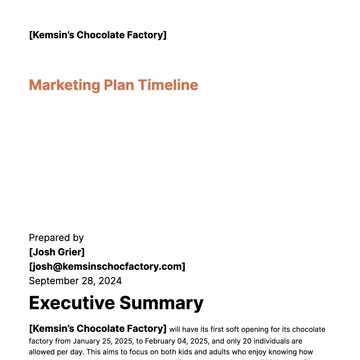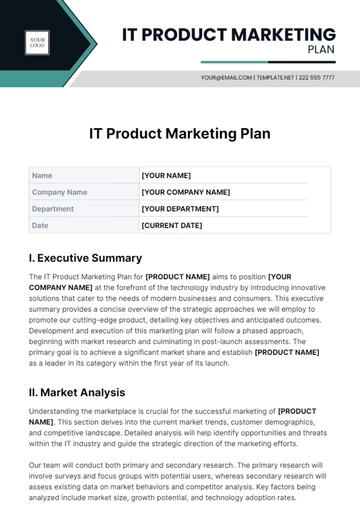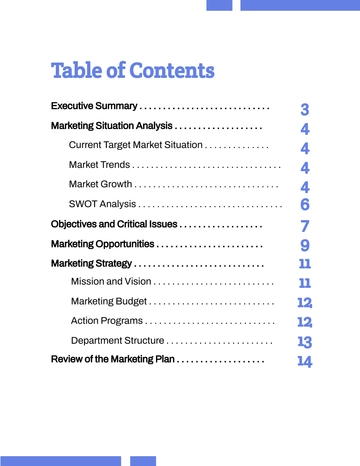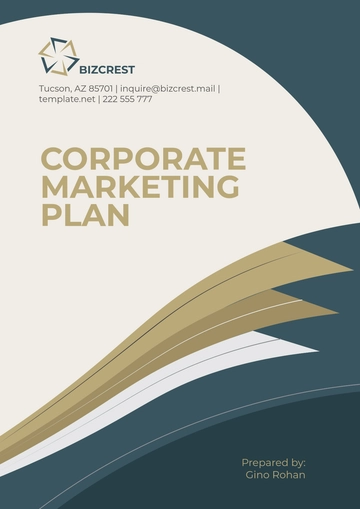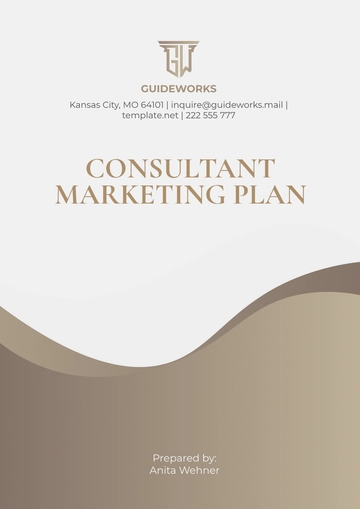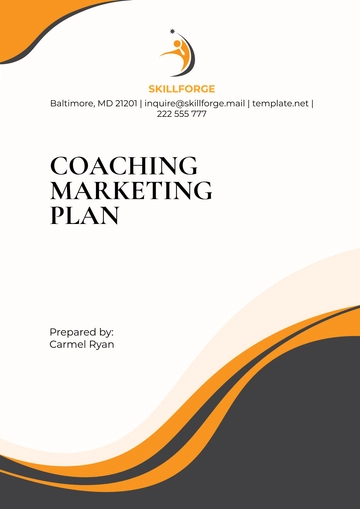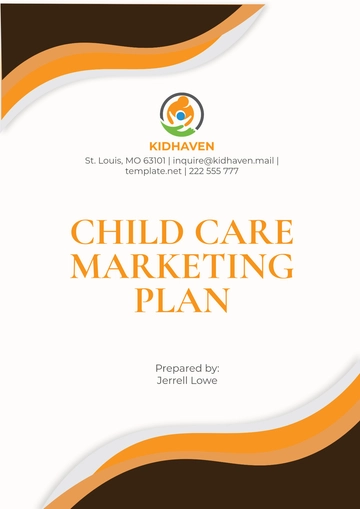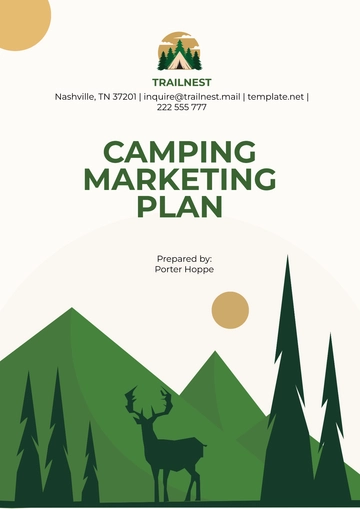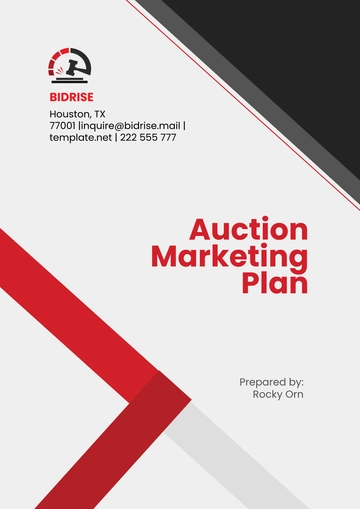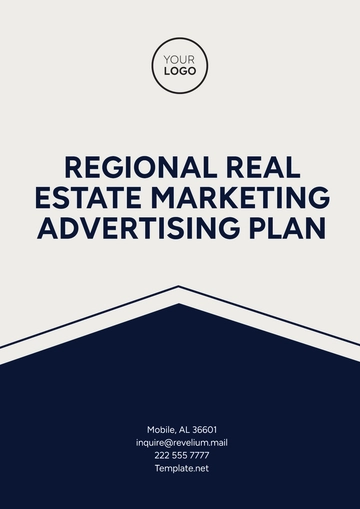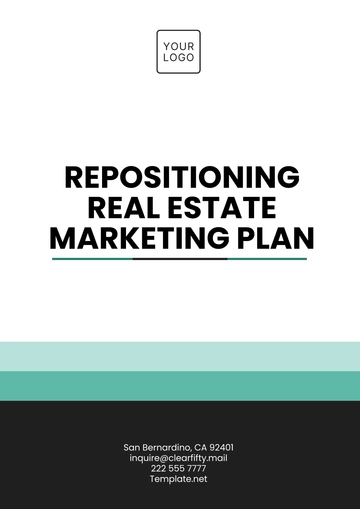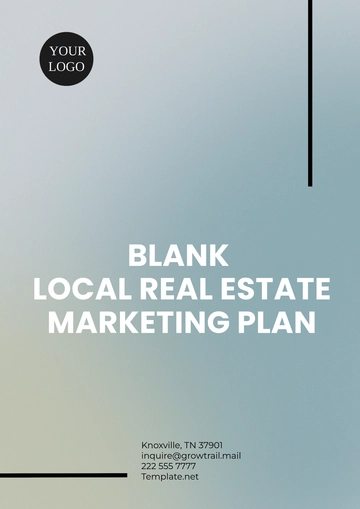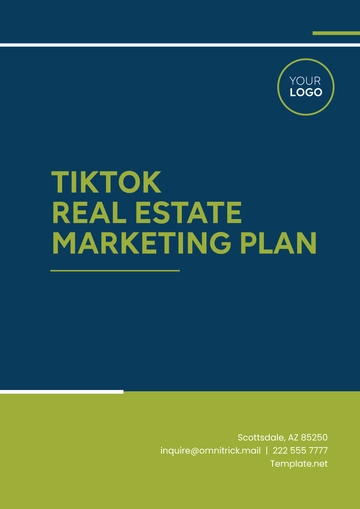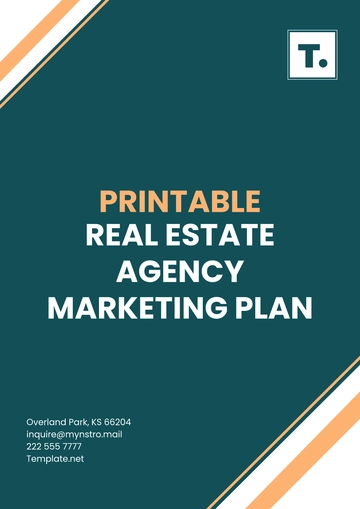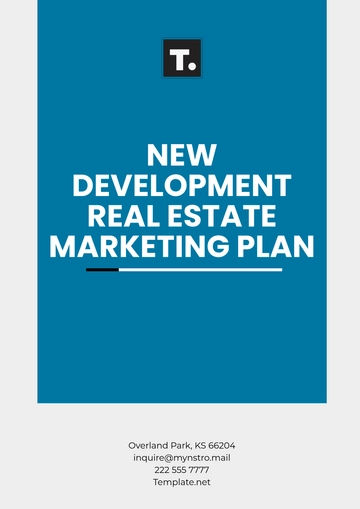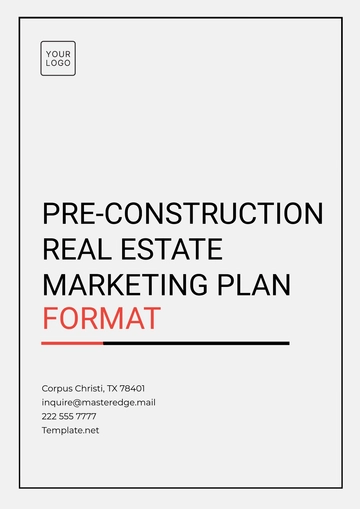Free Marketing Plan for Realtors Estate

Executive Summary
This marketing plan outlines comprehensive strategies aimed at establishing [YOUR COMPANY NAME] as a leader in the competitive real estate market. Our primary goals are to increase brand visibility, attract qualified buyers and sellers, and drive significant revenue growth. By focusing on digital engagement, content marketing, and sales enablement, we aim to create a robust marketing ecosystem that fosters long-term customer relationships and positions [YOUR COMPANY NAME] as a trusted real estate partner.
Market Analysis
Industry Overview
The real estate market is currently undergoing significant transformations driven by technological advancements, evolving consumer preferences, and shifting economic dynamics. The increased use of virtual home tours, the rise of AI-driven property recommendations, and the growing demand for sustainable housing are just a few examples of the changes reshaping the industry. [YOUR COMPANY NAME] seeks to capitalize on these trends by offering cutting-edge tools, a diverse property portfolio, and an unmatched customer experience.
Target Audience
Our primary target audience includes:
First-time homebuyers aged 25-40, often tech-savvy, seeking their first property in urban or suburban areas.
Property investors looking for high ROI opportunities in both residential and commercial properties.
Home sellers looking to upgrade or relocate, typically aged 35-55.
Future retirees who are downsizing or relocating to more affordable or desirable areas.
Secondary audiences may include international buyers and those interested in sustainable or eco-friendly properties, reflecting the growing trend toward green living.
SWOT Analysis
Strengths
Strong Brand Reputation: Well-established in local markets with a solid reputation for reliability and customer satisfaction.
Experienced Leadership Team: Knowledgeable leaders with expertise in real estate trends, market analysis, and customer relations.
Diverse Property Portfolio: Offering a wide range of properties that appeal to different demographics and investment strategies.
Weaknesses
Limited Digital Presence: While our traditional marketing methods have been effective, our online presence requires significant enhancement.
Resource Constraints: Limited budget and resources for large-scale advertising campaigns or national expansion at this stage.
Opportunities
Urbanization Trends: As more people move to urban centers, [YOUR COMPANY NAME] has the opportunity to tap into this growing demand for housing and investment properties.
Technological Advancements: The growing use of AI and big data in real estate provides an opportunity to enhance property recommendations and improve customer service.
Sustainable Living Trends: A growing number of buyers are seeking eco-friendly homes, creating an opportunity for [YOUR COMPANY NAME] to offer properties that align with these values.
Threats
Market Volatility: Changes in interest rates, inflation, and economic downturns can impact property sales.
Increasing Competition: New entrants and established competitors with larger marketing budgets and more extensive networks pose a challenge.
Changing Regulatory Environment: Shifts in local housing laws or tax regulations could impact property values and investment strategies.
Marketing Objectives
Increase brand awareness by 25% within the next 12 months through targeted digital and traditional marketing efforts.
Generate leads and increase conversion rates by 15% within six months by improving customer engagement strategies and optimizing sales processes.
Enhance digital engagement by 20% in the next quarter through social media and SEO strategies, with a specific focus on driving traffic to the website and generating quality leads.
Marketing Strategies
Brand Development
We will strengthen our brand identity by:
Logo Redesign: Modernizing the logo and refining brand messaging to ensure a consistent, professional, and approachable image.
Brand Messaging: Clear, concise messaging highlighting [YOUR COMPANY NAME]'s core values, trust, and expertise in the real estate market.
Partnerships with Local Influencers: Collaborating with local social media influencers and real estate bloggers to amplify our brand’s reach and appeal.
Digital Marketing
Website Optimization: We will develop a user-friendly website with integrated property search functionality, virtual tours, and an easy-to-navigate layout. SEO strategies will ensure high visibility in search engine results.
Social Media Campaigns: Our focus will be on Instagram, Facebook, and LinkedIn to showcase listings, client success stories, and informative real estate content. We will also implement targeted ads for lead generation.
Pay-Per-Click Advertising: Invest in Google Ads and social media ads to capture immediate leads and drive traffic to the website. We'll target specific demographics and search behaviors related to real estate.
Content Marketing
We will create valuable content that resonates with our audience:
Educational Blog Posts: Articles on topics like first-time homebuyer tips, investment strategies, and home staging will establish [YOUR COMPANY NAME] as an expert resource.
Market Reports and Guides: Provide monthly market insights, detailed property buying and selling guides, and neighborhood spotlights.
Client Testimonials & Case Studies: Showcase real-life success stories and testimonials from satisfied clients to build trust and credibility.
Video Content: Including virtual home tours, interviews with real estate experts, and behind-the-scenes looks at the process of buying and selling homes.
Sales Enablement
To empower the sales team:
CRM System Optimization: Implement a robust CRM system to track leads, automate follow-up emails, and streamline communication with prospects.
Sales Training: Regular training sessions on using digital tools, understanding market trends, and closing deals effectively.
Sales Toolkit: Provide agents with comprehensive resources, including scripts, objection-handling techniques, and detailed property information.
Implementation Timeline
Action | Duration | Responsible Party |
|---|---|---|
Brand Development | Month 1-2 | Marketing Team |
Website Development | Month 1-3 | IT Department |
Social Media Campaign Launch | Month 2-3 | Social Media Manager |
Content Creation (Blogs, Guides, Videos) | Ongoing | Content Team |
Sales Enablement (CRM, Training) | Month 2-4 | Sales Team |
Budget Allocation
Category | Budget Allocation |
|---|---|
Brand Development | 20% |
Digital Marketing (Website, PPC, Social Media) | 40% |
Sales Enablement | 15% |
Content Marketing | 15% |
Miscellaneous | 10% |
Performance Metrics
We will track and measure the following KPIs to assess the success of our marketing initiatives:
Website Traffic: Monthly visits and unique users.
Lead Generation: Number of inquiries and qualified leads.
Conversion Rate: Percentage of leads converted into clients.
Social Media Engagement: Likes, shares, comments, and follower growth.
Sales Growth: Increase in overall revenue and number of properties sold.
Customer Satisfaction: Post-transaction surveys and NPS (Net Promoter Score).
Conclusion
This marketing plan sets a clear roadmap for [YOUR COMPANY NAME] to grow its presence and revenue in the competitive real estate market. By focusing on digital marketing, content creation, and sales enablement, we aim to build a strong, enduring brand that appeals to both buyers and sellers. With our commitment to excellence, innovation, and customer satisfaction, [YOUR COMPANY NAME] is poised for long-term success.
- 100% Customizable, free editor
- Access 1 Million+ Templates, photo’s & graphics
- Download or share as a template
- Click and replace photos, graphics, text, backgrounds
- Resize, crop, AI write & more
- Access advanced editor
The Marketing Plan for Realtors Estate Template from Template.net is an editable and customizable solution designed to enhance your real estate marketing efforts. With easy-to-use features, it allows you to tailor the plan to your needs. Editable in our Ai Editor Tool, this template helps create professional, personalized strategies for real estate success.

